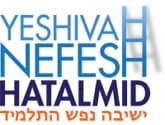In this week’s parsha we find the mitzvos of Bikurim and Maaser. Chazal tell us
בְּרֵאשִׁית בָּרָּא אֱלֹהִׁים – אין ראשית אלא חלה, שנאמר “רֵאשִׁית עֲרִׁסֹתֵכֶם”. ואין רֵאשִׁית אלא מעשרות, שנאמר “רֵאשִׁית דְּגָנְּךָ”. ואין
ראשית אלא ביכורים, שנאמר ” רֵאשִׁית בִׁכּוּרֵי אַדְּמָתְּךָ”. ועוד אמרו )שם(: בזכות משה, שנאמר ” וַיַרְּא רֵאשִׁית לוֹ “. וגם דרשוהו רבותינו ז”ל:
בשביל התורה שנקראת ” רֵאשִׁית דַרְּכּוֹ”, ובשביל ישראל שנקראו ” רֵאשִׁית תבואתו “.
The world was created for “first borns”, Challah, Maaser, Bikurim, Moshe Rabeinnu, the Torah, and Klal Yisroel. What do these things have in common? Rav Hirsch explains on the work “Bereishis” that hashem created a perfectly good world. The purpose of the Torah, Klal Yisroel, Moshe Rabeinu and these mitzvos are to inaugurate something new (a new phase in history, a new season in nature) and by dedicating the “first fruits”, the best of it, we are symbolically saying that really everything that follows after belongs to Hashem. For fruit, grain and animals, it is the rest of our possessions and nature. that belong to Hashem. For Klal Yisroel, the Torah, and Moshe, it is all of humanity. We give back to Hashem and pay homage to show that although we put in our best efforts he is really the source of everything. Anything that adds to the awareness of everything stemming from Hashem by giving back thanks to him is called “Reishis”. In our own individual lives, this certainly applies to our own “fruit”, our children ()”פרו” ורבו . Let’s look at what is said when we give bikurim, but instead of “fruit”, switch it with “our children”.
א וְהָיָה כִּי תָבוֹא אֶל הָאָרֶץ אֲשֶר יְהוָה אֱלֹהֶיךָ נֹתֵן לְךָ נַחֲלָה וִּירִּשְתָהּ וְיָשַבְתָ בָהּ . ב וְלָקַחְתָ מֵרֵאשִּית כָל פְרִּי הָאֲדָמָה אֲשֶר תָבִּיא
מֵאַרְצְךָ אֲשֶר יְהוָה אֱלֹהֶיךָ נֹתֵן לָךְ וְשַמְתָ בַטֶנֶא וְהָלַכְתָ אֶל הַמָקוֹם אֲשֶר יִּבְחַר יְהוָה אֱלֹהֶיךָ לשַכֵן שְמוֹ שָם . ג וּבָאתָ אֶל הַכֹהֵן אֲשֶר
יִּהְיֶה בַיָמִּים הָהֵם וְאָמַרְתָ אֵלָיו הִּגַדְתִּי הַיוֹם ליהוָה אֱלֹהֶיךָ כִּי בָאתִּי אֶל הָאָרֶץ אֲשֶר נִּשְבַע יְהוָה לַאֲבֹתֵינוּ לָתֶת לָנוּ . ד וְלָקַח הַכֹהֵן
הַטֶנֶא מִּיָדֶךָ וְהִּנִּיחוֹ לִּפְנֵי מִּזְבַח יְהוָה אֱלֹהֶיךָ . ה וְעָ ניתָ וְאָמַרְתָ לִּפְנֵי יְהוָה אֱלֹהֶיךָ אֲרַמִּי אֹבֵד אָבִּי וַיֵרֶד מִּצְרַיְמָה וַיָגָר שָם בִּמְתֵי מְעָט
וַיְהִּי שָם לְגוֹי גָדוֹל עָצוּם וָרָב . ו וַיָרֵעוּ אֹתָנוּ הַמִּצְרִּים וַיְעַנוּנוּ וַיִּתְנוּ עָלֵינוּ עֲבֹדָה קָשָה . ז וַנִּצְעַק אֶל יְהוָה אֱלֹהֵי אֲבֹתֵינוּ וַיִּשְמַע יְהוָה
אֶת קֹלֵנוּ וַיַרְא אֶת עָנְיֵנוּ וְאֶת עֲמָלֵנוּ וְאֶת לַחֲצֵנוּ . ח וַיוֹצִּאֵנוּ יְהוָה מִּמִּצְרַיִּם בְיָד חֲזָקָה וּבִּזְרֹעַ נְטוּיָה וּבְמֹרָא גָדֹל וּבְאֹתוֹת
וּבְמֹפְתִּים . ט וַיְבִּאֵנוּ אֶל הַמָקוֹם הַזֶה וַיִּתֶן לָנוּ אֶת הָאָרֶץ הַזאֹת אֶרֶץ זָבַת חָלָב וּדְבָש . י וְעַתָה הִּנֵה הֵבֵאתִּי אֶת רֵאשִּית פְרִּי הָאֲדָמָה
אֲשֶר נָתַתָה לִּי יְהוָה וְהִּנַחְתוֹ לִּפְנֵי יְהוָה אֱלֹהֶיךָ וְהִּ שתַחֲוִּיתָ לִּפְנֵי יְהוָה אֱלֹהֶיךָ . יא וְשָמַחְתָ בְכָל הַטוֹב אֲשֶר נָתַן לְךָ יְהוָה אֱלֹהֶיךָ
וּלְבֵיתֶךָ אַתָה וְהַלֵוִּי וְהַגֵר אֲשֶר בְקִּרְבֶךָ .
Paraphrasing: “When we settle our homes and possessions, we should place our “fruits” that Hashem has given us in a place dedicated to his name and prepared for the shechina to dwell (yeshiva) and, through a Kohein (educator) acknowledge Hashem for all he has given us and thank him. The Kohein shall use these “fruits” as part of the avodah on the mizbeach (dedicating them to avodas Hashem”). As part of this process of dedicating our “fruits” to Hashem, we must acknowledge the efforts of our parents and the previous generation who brought us (their fruits) here, their struggles and successes through davening and Hashems help, and who built for us a life “flowing with milk and honey” so that we could continue and dedicate our own “fruits”. Once we have done all we can, dedicating our lives and our “fruits” to Hashem, we rejoice in all the good Hashem has given us, the chance to serve him and be part of this amazing process, of humanity paying homage to Hashem and thanking him by us dedicating our “Reishis” to him. Us. Our wives (בֵיתֶךָ ). With our educators and leaders (הלוי ). With our ancestors who struggled for this and whose dreams are fulfilled through us educating our children, all the way back to our ancestor Avraham Avinu (וְּהַגֵר אֲשֶר בְּקִׁרְּבֶךָ ).
Raising jewish children, dedicating them to Hashem, is a tremendous zechus and the purpose of the entire creation. By doing so we become part of a process that has spanned the entire history of the world and gives the world purpose. At times it is difficult, and we don’t always recognize or approve of all the “fruits” as our own, but we take what we have been given and do our best, in a spirit of appreciation and acknowledgement of previous generations, the continuing mesorah, and all the good Hashem has done for us throughout history and continues to even now. With this attitude, no matter the results, we will ultimately rejoice with Hashem and all others who have “partnered” with him in raising jewish children, our families, teachers, and ancestors. May we be zocheh.
Shabbat Shalom, Good Shabbos,
Rabbi Ari Deutscher MSW
Menahel

Leave A Comment